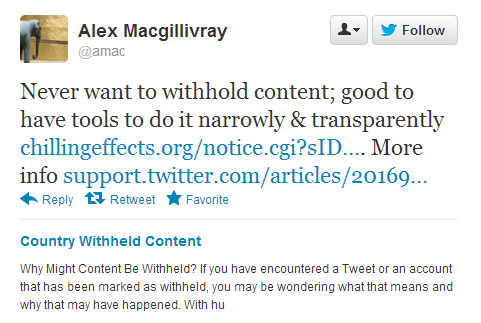Twitter has removed offensive material from posters in both France and Germany. But the specific response and the reasoning behind it varies significantly.
Yesterday Twitter confirmed that, for the first time since introducing such a policy in January, it had chosen to block an account in one country only. The idea of the policy is to meet local laws while keeping censorship to a minimum.
The account in question belonged to a German right-wing extremist group, Bresseres Hannover. A local court had outlawed the group and charged members with incitement to violence. Police then asked Twitter to close the account under German law.
Instead Twitter simply blocked the group’s posts being visible to anyone with a German IP address, but left the people running the account free to post messages visible in the rest of the world.
Today Twitter has agreed to remove a string of anti-Semitic messages that carried the hashtag #unbonjuif, which translates to “a good Jew.” The Union of French Jewish Students threatened legal action against both the individual posters and Twitter itself, noting that the messages violate French law.
Twitter hasn’t yet commented on the French case, but it appears it will simply delete the messages completely while leaving the accounts open for viewing everywhere, including France. The removal looks to be on a message-by-message case, rather than blanketly removing anything with the hashtag.
Although Twitter has responded to the cases differently, it’s actually consistent in that in both cases it is following local law: in France it is the messages themselves that break the law, while in Germany the violation comes from the account representing an outlawed group.
What isn’t clear is why it hasn’t blocked the tweets in France only and left them visible to the rest of the world. That may be a judgment call about the content of the tweets rather than merely a legal issue.

